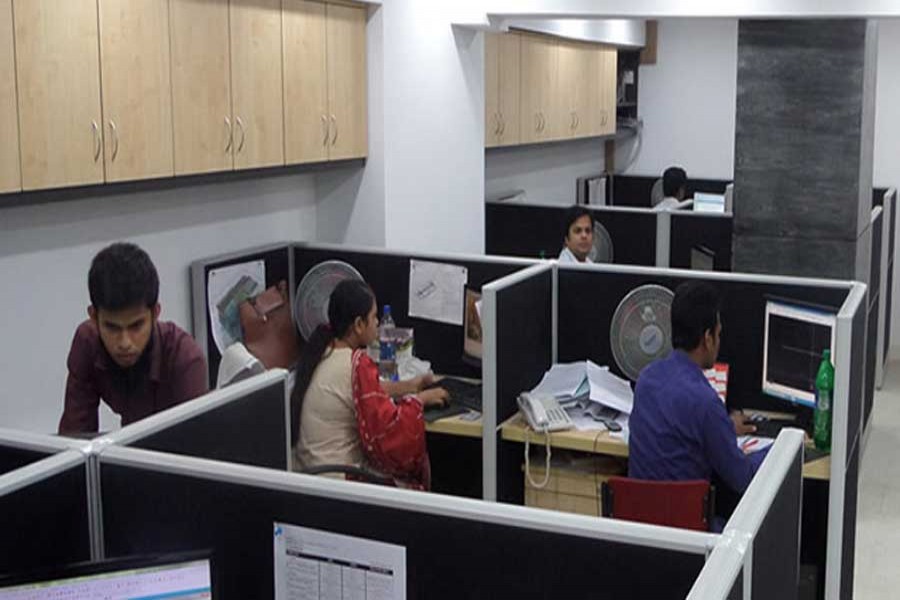The World Bank (WB) is assisting Bangladesh in establishing an 'Export Readiness Fund' to take newer sectors on the international market to promote job-centric economic growth.
Officials said under the ERF issues of environmental, social and quality-compliance constraints involving the emerging export-oriented industries will be addressed to make them ready to fit in the global standards, as few sectors are overdrawn on and getting oversaturated.
An initial matching fund worth US$ 13 million will provide funds on a matching basis to identify and address ESQ constraints in potential sectors like leather, footwear, plastics and light-engineering.
The country desperately looks to diversify its paltry export basket that fails to avail the export opportunities Bangladesh is entitled to in various countries under world trade rules as well as bilateral and multilateral pacts.
The fund will be set up under the umbrella of a US$ 119 million project called 'Export Competitiveness for Jobs' that would mostly be financed by the World Bank and implemented by the government Ministry of Commerce.
The WB is set to sign a formal financing agreement with the government today (Sunday) for implementing this project, at the core of which lies much-needed job creation for millions left unemployed.
"The fund will assist the targeted industries by supporting investment both in business or technical services as well as essential complementary equipment," said Hosna Ferdous Sumi, a private-sector specialist with the WB.
"This would help these firms to identify and address compliance gaps and upgrade the quality of products and production procedures," she said, adding: "We are aiming to reach around 400 entities from sectors like leather, footwear, plastics and light engineering through this funding."
The WB initiative comes at a time when there have been growing calls for diversifying Bangladesh's export basket amid continuous overdependence on readymade garments.
Experts have long pointed out that apart from cushioning the country from unforeseen changes in the global market, diversifying the export basket is also critical to creating more jobs in the economy.
Statistics show while other growing economies like Vietnam have moved towards diversification, Bangladesh's export-basket composition has remained similar over the past 20 years, with garments overwhelmingly dominating the trade.
"On an average, top five export items together account for 88 per cent of the country's total export value while 91 per cent of those top five exports constitute knitwear and apparel," said a high official of the Ministry of Commerce.
"Nevertheless, there are a number of sectors like leather, footwear, plastics and light engineering where, we think, Bangladesh has demonstrated comparative advantage in global value chains," he added.
The Export Readiness Fund will operate three windows through which entrepreneurs and business owners can submit grant proposals.
One of them will be ESQ-compliance-assessment window which will cover technical assessments at the firm level to identify gaps and actions required to improve compliance with ESQ standards.
A grant limit of US$ 5000 will be set and applications will be processed on a rolling basis with relatively limited administrative requirements, officials informed.
In addition, there will be a small-grant window which will cover mainly services with a grant limit of US$ 40,000. The average grant size, in this case, would be roughly US$ 15,000 and the grant-to-private contribution ratio would be approximately 60:40.
Besides, the large-grant window will cover projects that may include both services and fixed-asset expenditures up to a maximum grant of US$ 200,000.
The expected average grant size will be US$110,000 and the grant-to-private contribution ratio would be approximately 50:50.
ERF will be managed by a fund-management company with a proven track record which will be recruited through internationally competitive bidding, officials informed.
Experts and academics termed such an export-readiness fund a timely initiative. However, they also opined that a few other emerging export sectors should receive similar incentives.
"For example, our information-technology sector and pharmaceutical industries have high export potential and they should also be eligible for such funds," said Dr Khondaker Golam Moazzem of the Center for Policy Dialogue (CPD).
"At the same time, small and medium-sized enterprises from the selected sectors should get due priority in receiving funds from ERF," he added.
Apart from the Export Readiness Fund, the WB project also aims to establish four technology centers: two general engineering facilities, in the vicinities of Dhaka and Chittagong, a testing and calibration facility in the vicinity of Dhaka as well as a design and technology facility for the leather sector in Dhaka city.
The technology centres will be managed in public-private partnership (PPP) model, officials informed.
"There are certain areas in our emerging export-oriented industries where better technology adoption is the key to improving the competitiveness of Bangladeshi products," Ms Sumi said.
"For example, designing is an area where our leather and footwear sector needs notable improvement while our light-engineering sector requires better-quality molding techniques," she added.
In this context, the technology centres will aim to address such issues by providing technical training and capacity building on advanced skills development and business-development services.


